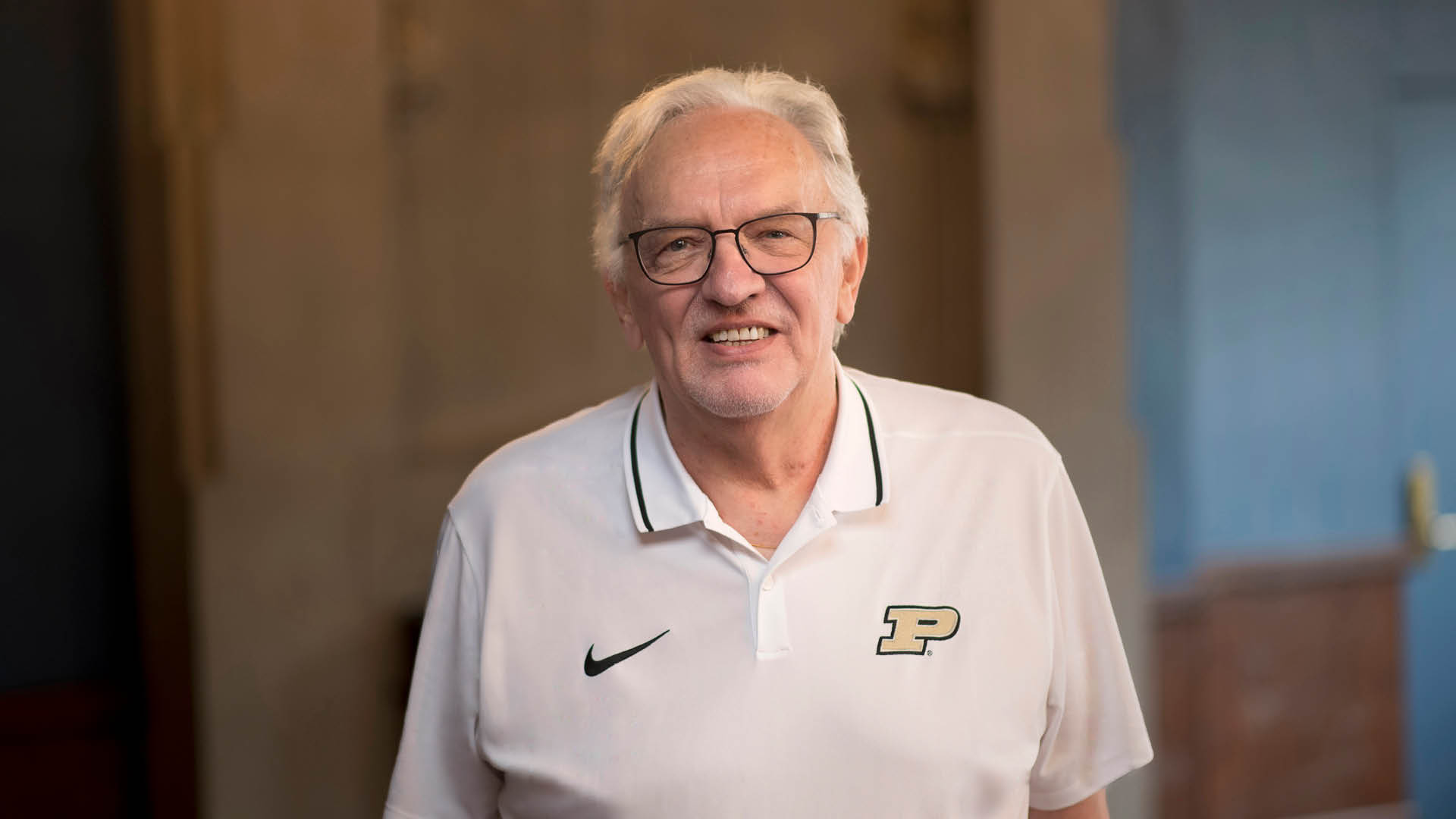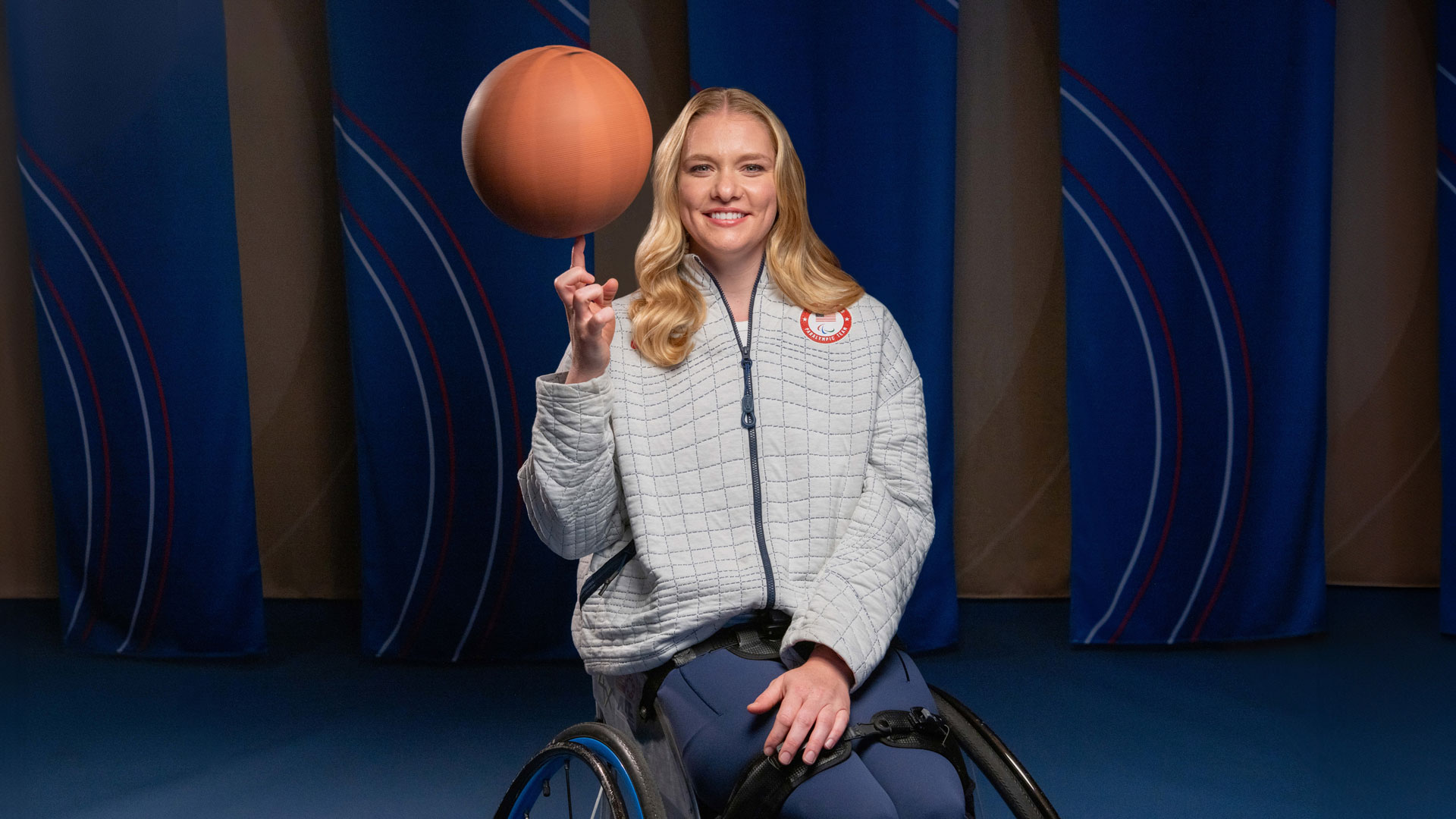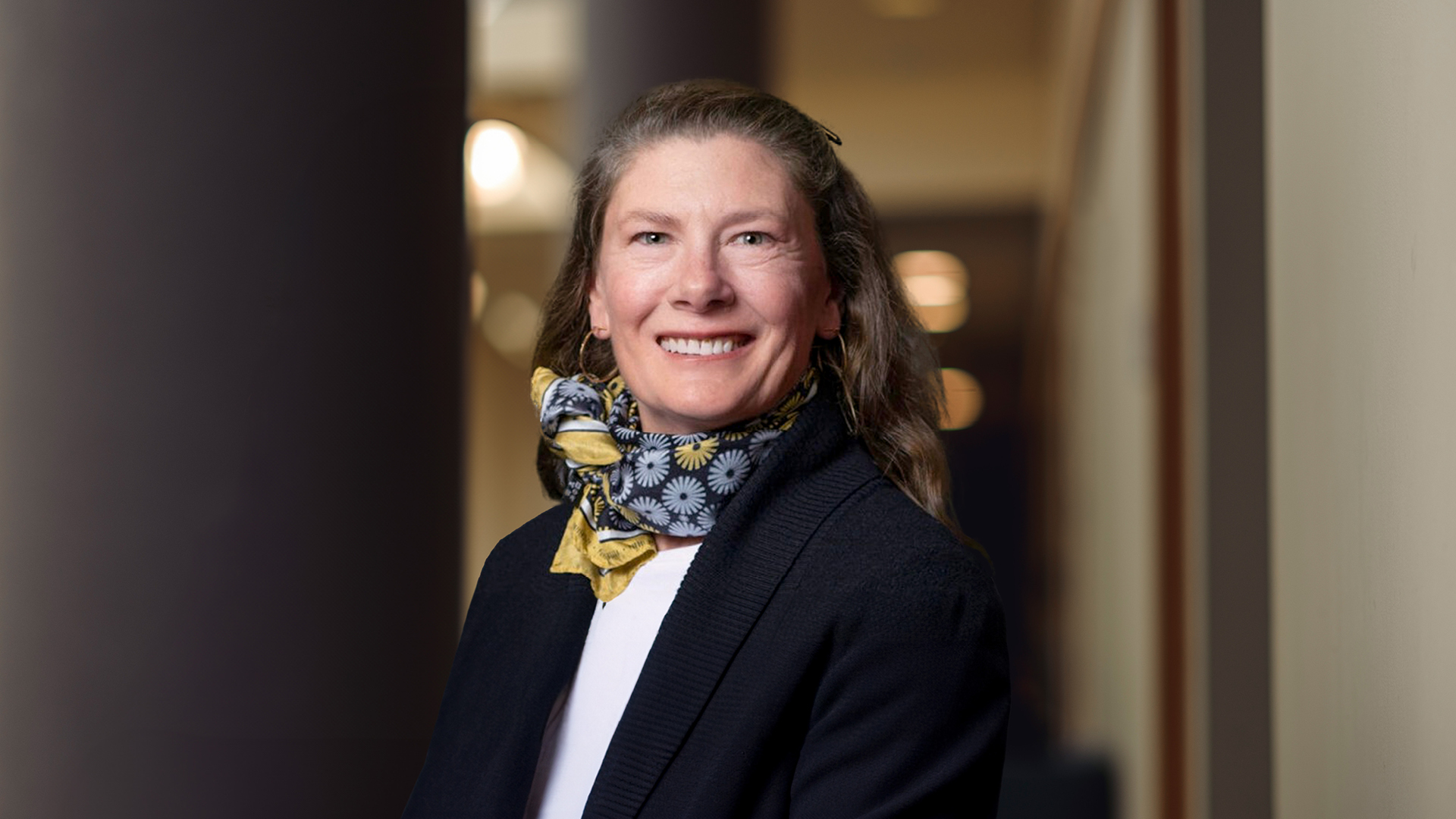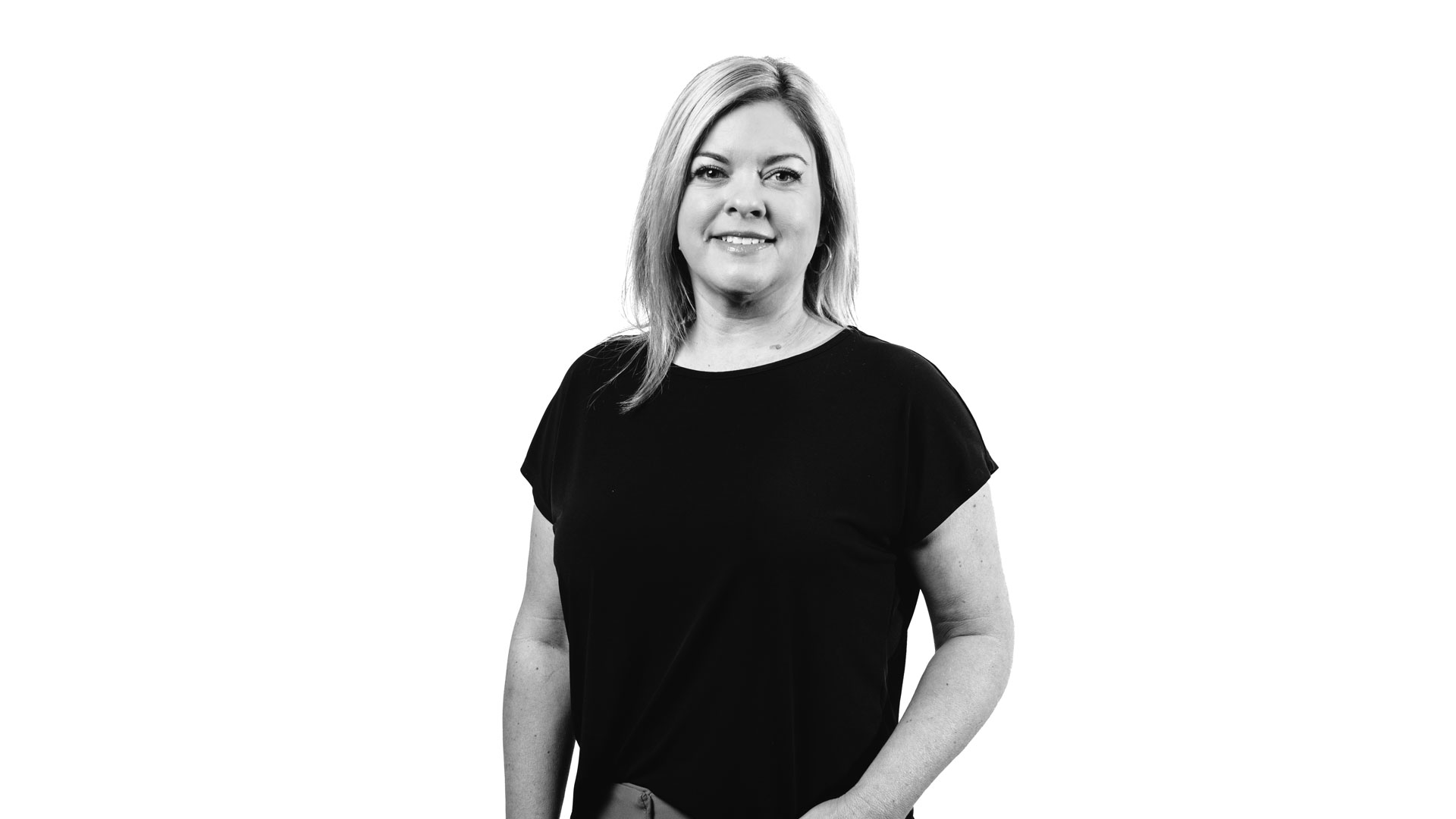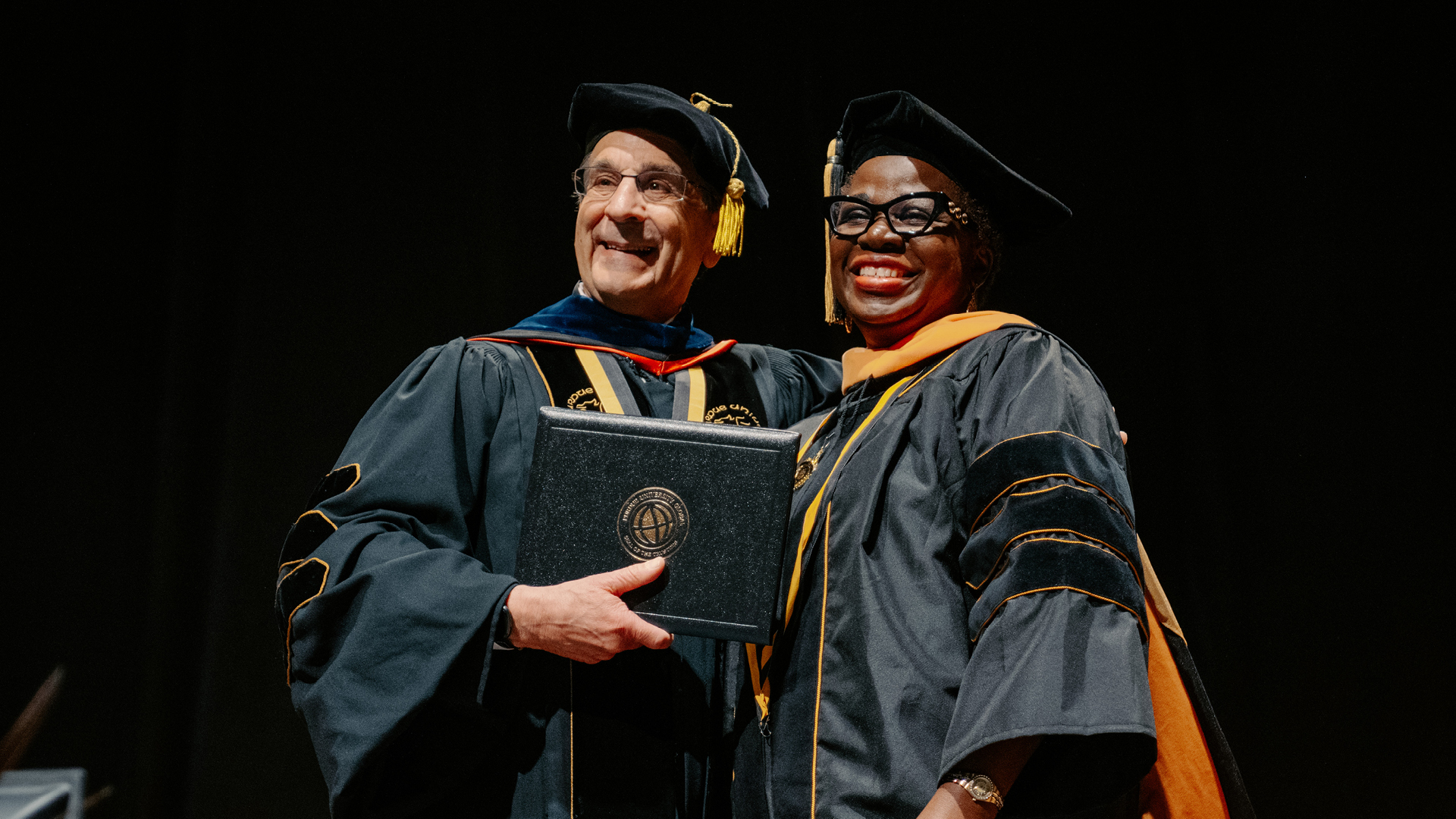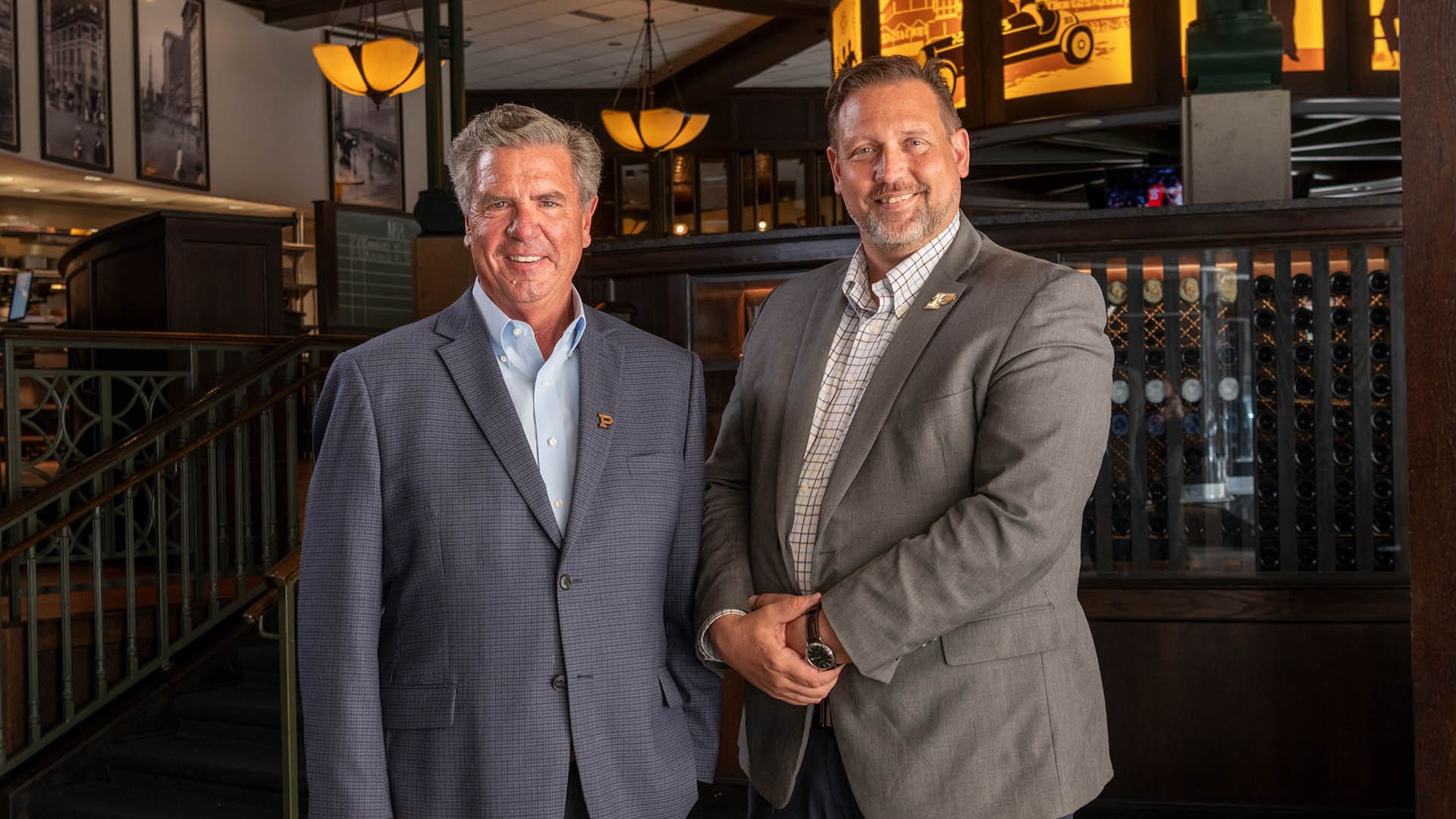Purdue’s ‘Divine Nine’ on their one-of-a-kind community
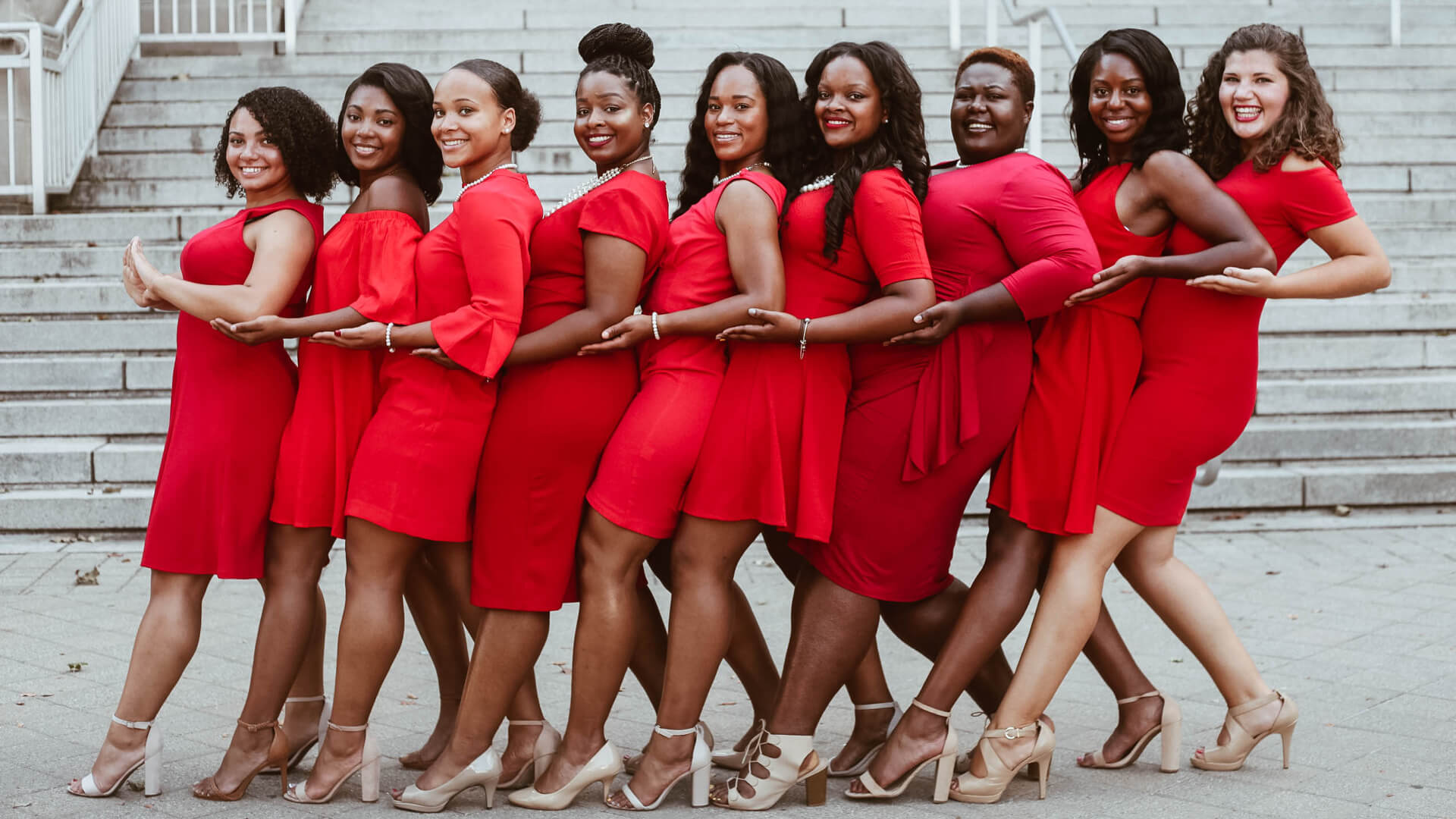
Sydney Tucker (fifth from left) and members of Delta Sigma Theta Sorority, Inc. dressed in official sorority colors (Photo provided)
Members tell their stories of lifelong friendship and support
“Friendship is essential to the soul.”
These words compelled Michael Durrett to pledge Omega Psi Phi Fraternity, Inc., one of the “Divine Nine” historically Black fraternities and sororities founded in the early 1900s. The motto, from which its Greek letters derive, sums up a core characteristic of the Divine Nine organizations — lifelong, sustaining friendships.
The nine organizations are governed by the National Pan-Hellenic Council (NPHC). For many Black students, membership in the NPHC offers an opportunity to celebrate Black excellence and a space where they can express their authentic selves, forging friendships that last well beyond their undergraduate years.
At the time of Durrett’s initiation, there were only four Omega brothers on campus. The chapter had just been reactivated in 2005. Though small in number, the close bonds formed between the men intensified through their shared experiences. Without official campus housing, the Omegas lived together in a two-bedroom house.
“The brothers of Omega were always together,” Durrett says. “At the Class of 1950 Diversity Tree, they were together. At the party, they were together. If they were getting food, they were doing it together. I looked at that and thought, ‘They’ve got each other’s backs.’”
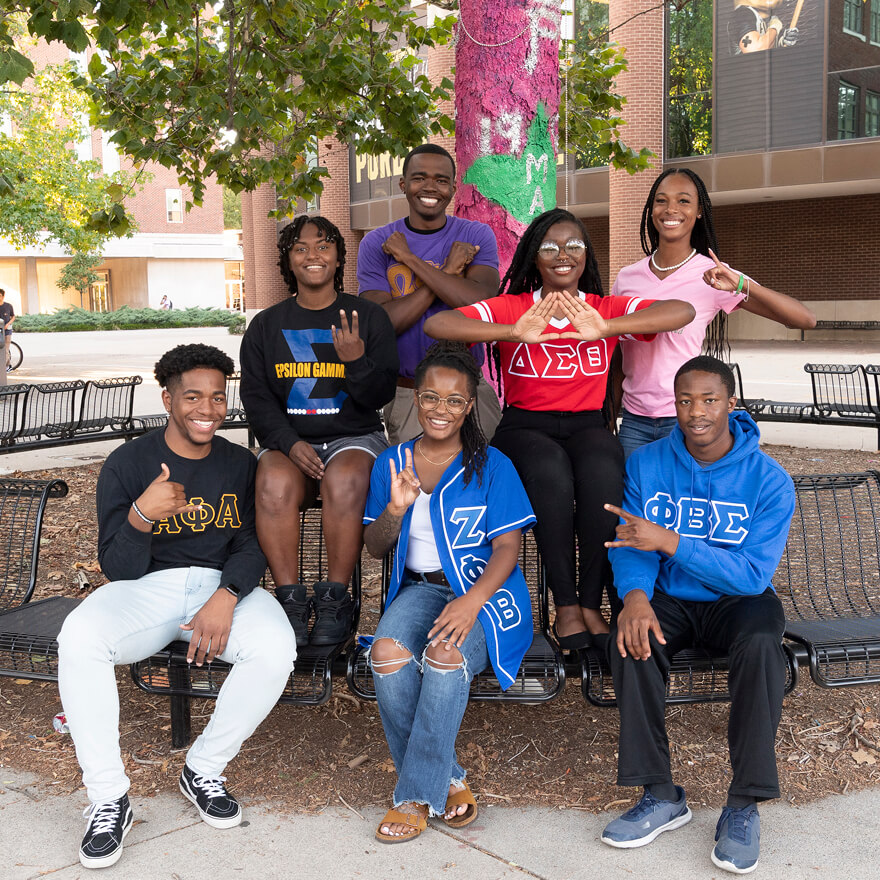
Recruited to play football on an academic scholarship, Durrett, who earned a Bachelor of Science in computer graphics technology in 2008 and a Master of Science in education and leadership in 2011, acclimated to the team before he acclimated to campus life. Despite his status as high school valedictorian and a three-sport athlete, he found himself on academic probation after his first semester of college.
Coming from a diverse, urban setting in Indianapolis, he’d never been exposed to a predominantly white environment. On a campus where only a small percentage of the student population identifies as Black, it was challenging to connect with students who didn’t share his experiences or cultural identity.
Committed to excelling in academics and earning his degree so he’d have the means to raise his family up from poverty, Durrett focused on his studies and didn’t have much time to form friendships outside the football team. By his senior year, he began actively seeking an organization where he could belong.
“I was looking for friends, someone who would have my back,” Durrett says. “Once I got into the fraternity, I realized the meaning of the word friend. Now I rarely use that word because I hold it in such high regard. I cherish friendship like no other because of my involvement in the Rho Sigma chapter. We are a tightknit group. Going in, I was informed that joining this organization was a lifelong commitment. I knew what I was signing up for.”
After graduation, Durrett became involved in his fraternity’s graduate chapter in Lafayette, which consists of alumni members from across the country. While in the graduate chapter, Durrett served as the adviser for Rho Sigma, the chapter chartered on Purdue’s campus in 1942, as well as an Indiana state representative overseeing five chapters throughout the state. He recently was elected as district director of public relations in Omega Psi Phi’s 10th district.
“I immediately transitioned to the graduate chapter and sought out leadership roles as an alumnus,” Durrett says. “That helped me to develop a continuity of community from my undergrad experience. I had just joined as a senior, so I wanted to preserve that community and stay connected.”
Professionally, Durrett serves as president of Above All Else, a nonprofit he founded in 2011 to enhance the mental, physical and spiritual well-being of others through education and human services, and Urban Excellence, an educational consulting firm that provides culturally relevant programming and training for organizations in the Indianapolis area. He’s also pursuing a PhD in urban education at Indiana University-Purdue University Indianapolis.
Since graduation, his Omega brothers have remained a fixture in his life. It’s not unusual for Durrett to talk with three fraternity brothers at least once a day. Others, he talks with two or three times a week. They’ve supported one another through celebration and tragedy. In his capacity as an adviser, Durrett now has the opportunity to instill the same values of friendship and community in current students. The Rho Sigma chapter on campus has grown in membership, too.
“The current Rho Sig leadership has really committed to the work that needs to be done to grow the chapter,” Durrett says. “They have the desire to make those connections to ensure longevity and sustainability. ‘Long live Rho Sig!’ That’s what we say. It’s the embodiment of the informal feeling of brotherhood you get when you’re around us. It doesn’t matter what decade or what year you came in, it’s the same feeling. And I love it.”
It’s the embodiment of the informal feeling of brotherhood you get when you’re around us. It doesn’t matter what decade or what year you came in, it’s the same feeling. And I love it.
Michael Durrett
Omega Psi Phi Fraternity, Inc.
A mission of service
For Deverieux Coleman, a junior majoring in economics from Gary, Indiana, her introduction to sorority life started early. Her mother is a member of Sigma Gamma Rho Sorority, Inc. and Coleman participated in Rhoer Club, a youth group affiliate, as a high schooler.
“Being part of the Rhoer Club taught me sisterhood and leadership at a young age,” Coleman says. “We learned things like table manners, but we also learned how to manage our finances and the importance of having a bank account in your own name. Rhoer Club taught us to be self-sufficient women.”
Although she valued her time as a Rhoer, Coleman wasn’t planning to participate in Greek life in college. She started her freshman year early, enrolling in the Dr. Cornell Bell Business Opportunity Program (BOP) summer session, which connected her with other Black students on campus. But as she got to know Sigma Gamma Rho members and learned more about its service mission, she decided to pledge after all.
“The members I met were really nice and relatable,” Coleman says. “They told me what they were about, and I could see myself being a part of this.”
Coleman now serves as president of the Epsilon Gamma chapter on Purdue’s campus. Sigma Gamma Rho, the only Divine Nine sorority to be founded on a predominantly white campus, celebrates its 100th anniversary this fall.
“Our motto is Greater Service, Greater Progress,” Coleman says. “We’re all about creating environments and spaces where women, specifically Black women, can thrive. When Sigma Gamma Rho was founded in 1922, Black women weren’t allowed to attend certain schools or participate in certain organizations, which is why they started their own.”
For Coleman, that historical context highlights the strength and perseverance of the Divine Nine organizations, whose membership is open to all, regardless of race or ethnicity.
“Our founders paved the way for us to make it to 100 years,” Coleman says. “They created a space on campus where I can fully be my authentic self. Tightening up my mannerisms to present as professional or be perceived as adequate for the space that I’m in, that’s a subconscious thing I do as a Black woman. I don’t have to do that around my sisters. It’s a sacred space where we can be ourselves without feeling judged.”


Like Coleman, Sydney Tucker, a 2019 graduate who majored in communications, grew up immersed in the legacy of her mother’s sorority. Her mother was a member of Delta Academy and Delta GEMS (growing and empowering myself successfully), the affiliate pre-teen and teen programs of Delta Sigma Theta Sorority, Inc., which is the largest Black Greek letter sorority in the world. Sheila Sherman, ’86, crossed the Zeta Theta chapter at Purdue in spring 1985 nearly 35 years before her daughter, Tucker, would become chapter president.
“I was familiar with the sorority and how involved Deltas are in their communities because I was exposed to the organization at a young age,” Tucker says. “Once I got to campus and started attending events and associating with some of the girls in the chapter, I knew joining was the right decision for me.”
Tucker, a broadcast journalist known professionally as Sydney Simone, had attended Purdue Black alumni events and NPHC homecoming celebrations with her mother. As a child, Tucker witnessed firsthand the strength and tenacity of Purdue’s Black community. As president of NPHC, she partnered with other Greek councils on campus to host collaborative community service events and played a role in promoting an inclusive space on campus where talents and abilities were celebrated.
“Even amongst the Divine Nine, we all wear different colors and different letters, but we’re under the same umbrella and share the same experiences,” Tucker says. “We’re taught when we go through the formal process that these are people you are bonding with for a lifetime. That’s why we say sisterhood and brotherhood, these are relationships that will be with you beyond your time at the University. You will always have that support system behind you.”
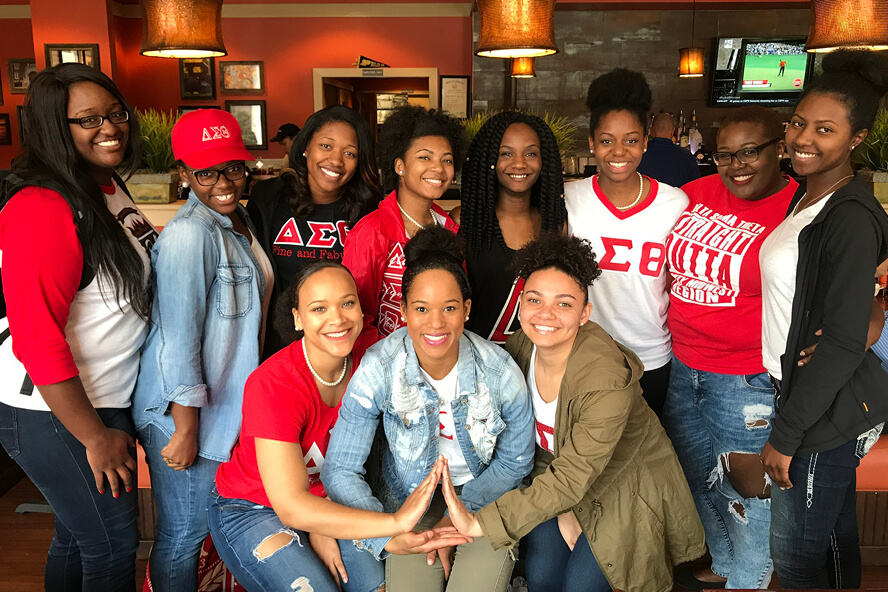
These are relationships that will be with you beyond your time at the University. You will always have that support system behind you.
Sydney Tucker Delta Sigma Theta Sorority, Inc.
A common bond
Maurice Markey, a 1989 industrial engineering graduate, came from a high school where more than 50% of the population was Black. After his first night on campus, it was clear he was in a different environment.
“That’s when you begin to seek places of comfort, whether it was Dr. Bell’s BOP, Marion Blalock’s Minority Engineering Program or the NPHC council,” Markey says. “You participate in social, philanthropic and community endeavors and establish those deep connections.”
Walking into a large lecture hall as a first-year engineering student can be intimidating for any freshman. For Black students who don’t encounter many classmates who look like them, the feeling can be alienating.
“You enter these big rooms with several hundred students,” Markey says. “You quickly scan the crowd and you’re lucky if you see one, maybe two students who look like you. There’s a whole range of emotions you go through, but the initial one is shock. I’m still cognizant of how many other Black people are in any room I enter. Especially in corporate America, for many African Americans it’s just a subconscious thing we do.”
A first-generation college student, Markey’s introduction to Purdue came in seventh grade when he participated in a future innovators camp. A contest tasked the students with designing technological innovations of the future. He envisioned a video phone and a contraption that would transport trash to outer space. His ideas won the contest.
“That planted the seeds to pursue an engineering degree,” he says. “I was good at math and science and one of the top engineering schools in the country was right in my backyard.”
He went on to earn an MBA from Indiana University and is now CEO of Pro Food Solutions, a portfolio company of IMB partners, a private equity firm. An executive leader, global brand builder and strategist, Markey has held executive positions at Kraft Foods, Walmart, Eli Lilly and Company and Designer Brands. As he’s navigated his corporate career, he’s received support from brothers of Kappa Alpha Psi Fraternity, Inc. and members of other Divine Nine organizations.
“There’s an instant level of familiarity when you realize you share that connection,” Markey says. “In the professional Black community, we joke that we’re at most one degree of separation from one another in any given situation. When I meet another Kappa, there’s this instant bond because we have a shared experience. Even meeting a Delta or an Alpha, it’s like you already know a little bit about their backstory.”
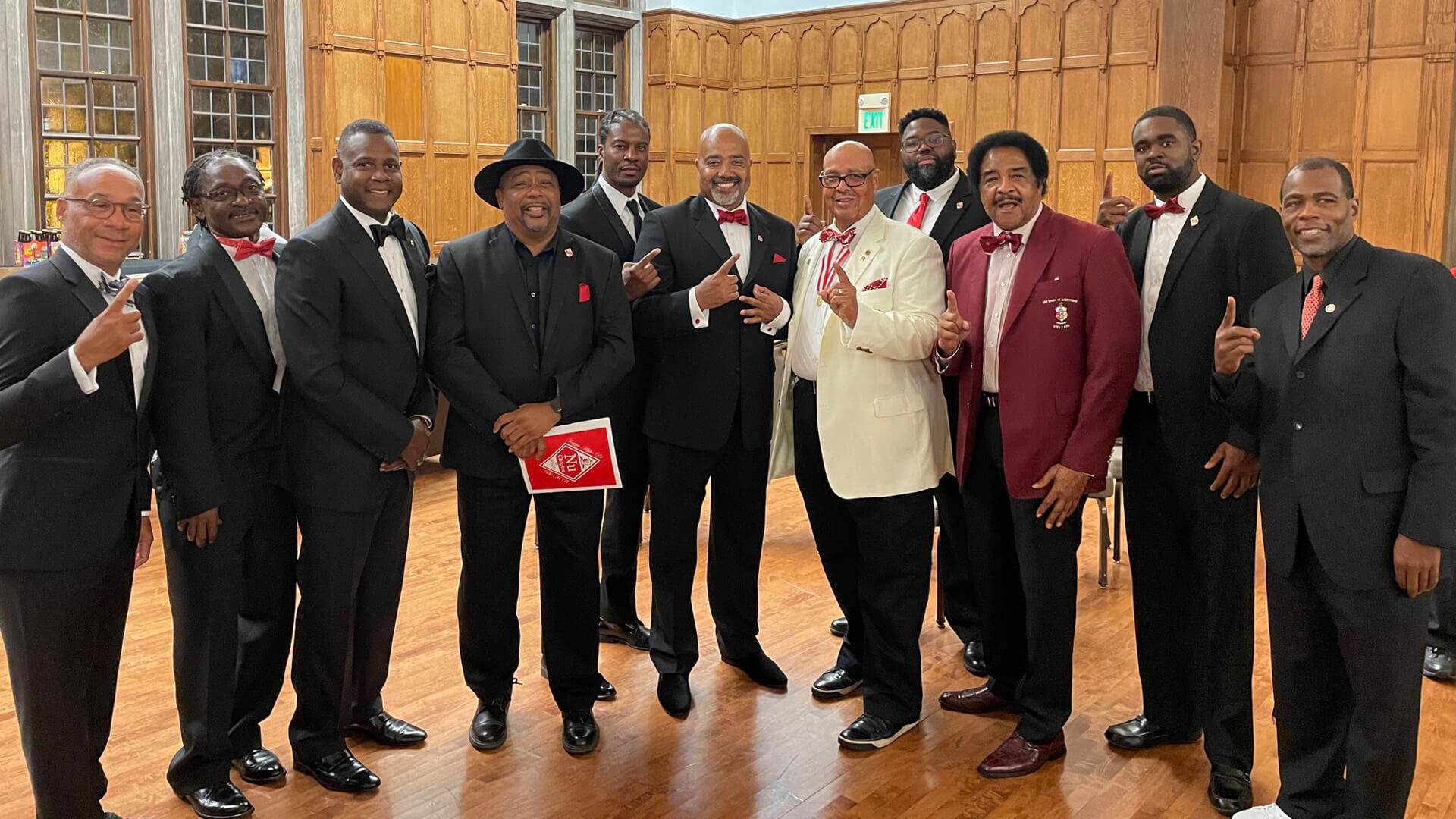
His wife Tamara Markey, a 1994 industrial engineering graduate who also earned a Master of Science in engineering technology education in 2015, was invited to become a Kappa little sister on her first day on campus. Although little sister programs have largely been phased out, at the time they provided support to fraternities by helping to organize recruitment and other events. It was through the fraternity that Tamara met Maurice; he was president of the Kappas at the time. Like Maurice, Tamara was also studying industrial engineering.
“I grew up in Detroit where I rarely saw a white person,” Tamara Markey says. “Then, my junior year of high school I moved to Idaho. So I’d already gone through a culture shock for two years. Coming to Purdue was refreshing because I saw more Black people on campus than I ever did in Idaho. But not seeing very many women, especially other black women, in my engineering courses was daunting. There’s a lot of pressure to succeed. Having support and community becomes vitally important to spur you on in the moments when you’re frustrated.”
Tamara Markey, an educator honored as Indiana’s Teacher of the Year in 2019, waited to pledge Alpha Kappa Alpha Sorority, Inc. because she was busy with her engineering co-ops. But joining AKA was always in the back of her mind. Her line, or pledge class, was eight women.
“It’s a bond that exceeds campus,” Tamara Markey says. “There’s a common thread and level of comfort with all sorors. Being an AKA has definitely opened doors of opportunity for me.”
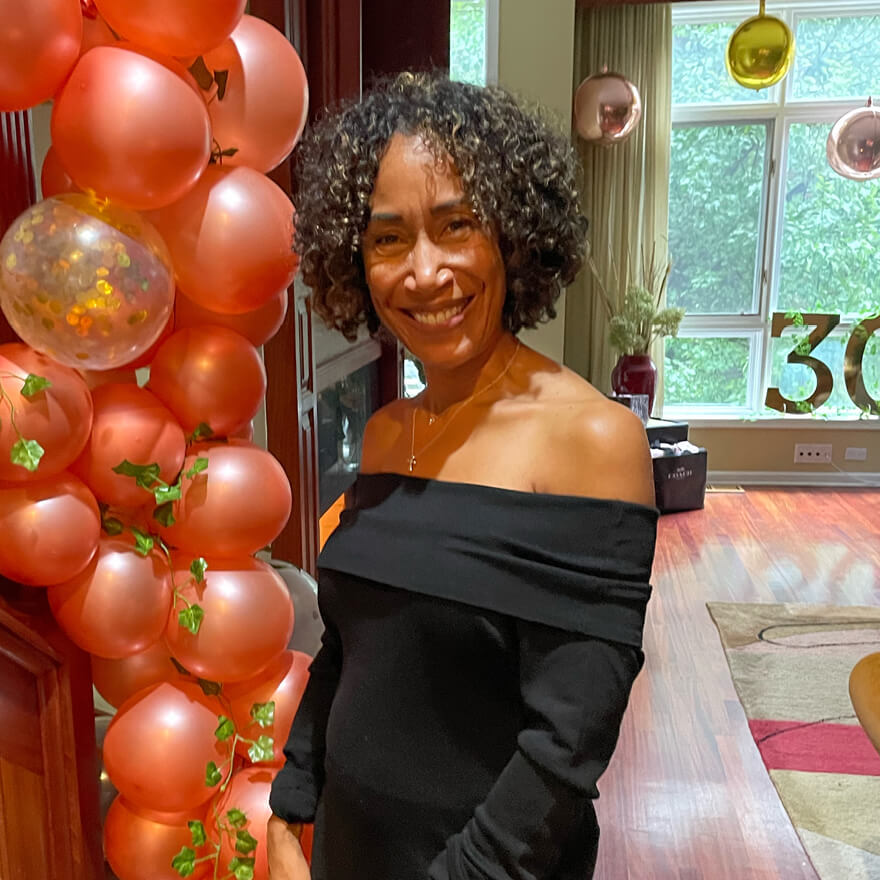
Though Tamara Markey is not formally active in her sorority as an alumna, she maintains a close friendship with her line sisters. Last fall, they gathered in Chicago to celebrate the 30th anniversary of their crossing (initiation into the sorority).
“We’ve all enjoyed successful careers and worked very hard for what we have,” Tamara Markey says. “We’ve had children, some of us have grandchildren. We’ve seen each other through graduations, divorces and deaths. We have such a transparent, open dialogue. We share tears and laughter. I appreciate these women so much more than I did 30 years ago.”
Maurice Markey remains connected through Kappa’s alumni groups, and a number of his closest friends are fraternity brothers. Kappa Alpha Psi celebrated the 100th anniversary of Purdue’s Nu Chapter last year, and he spearheaded the establishment of an endowed scholarship to benefit Purdue students with an emphasis on African American men. “These fraternities and sororities have stood the test of time,” Maurice Markey says. “We continue to evolve but remain a place of comfort to come together with others who share our objectives. Ours is a legacy of service. It’s about giving back to the community. There are lessons I learned as chapter president that I carry with me today as a professional leader. It’s a great proving ground for young men and women as part of their college experience.”
